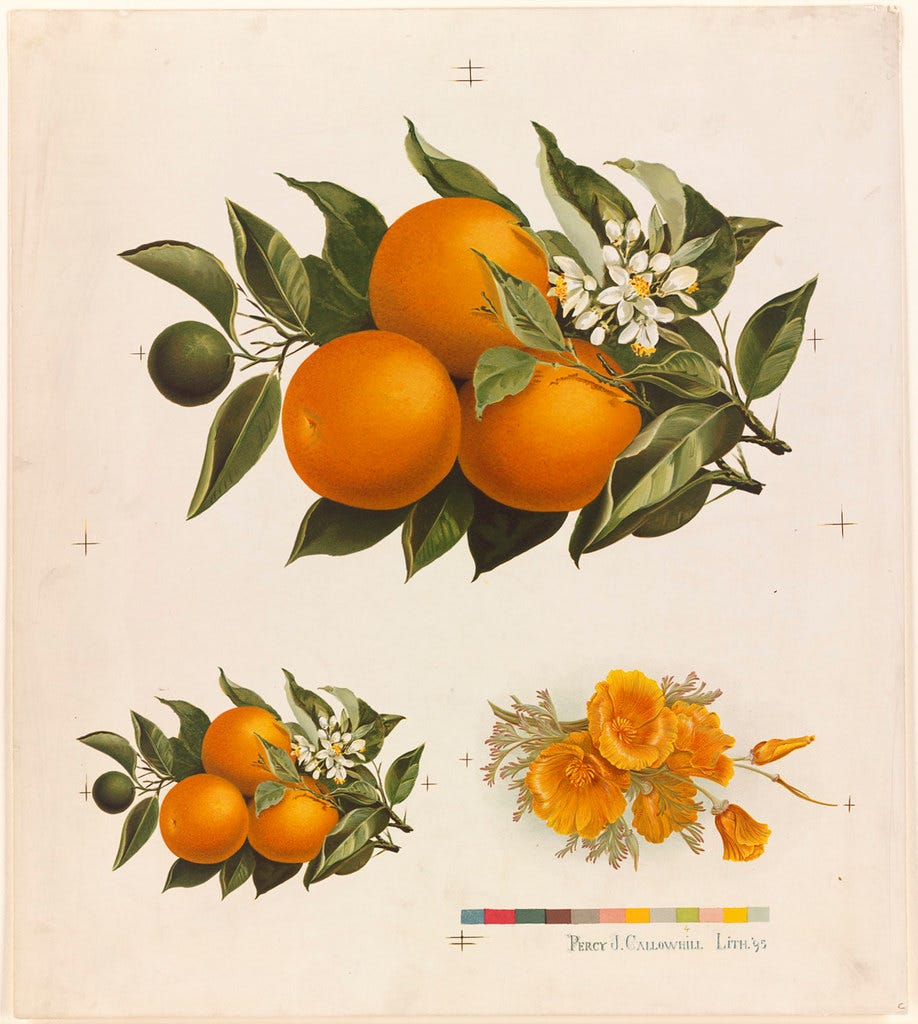The Orange & Bee publishes original and contemporary short stories, poems, and essays that explore, expand on, and subvert the rich traditions of international folklore, with a strong focus on fairy tales (though we also sometimes dabble in other forms of folklore, such as fables, myths, and legends). We also publish traditional tales accompanied by annotations, discussion questions, and writing prompts.
But our real and not-so-secret mission is to build a community—a virtual salon—around our shared passion for fairy tales.
In addition to publishing short stories, flash fiction, poetry, and essays, which are freely available to all of our readers, we host regular Writing roundtables and Reading roundtables for our paid subscribers.
Writing roundtables are for our paid subscribers only, and are online, asynchronous conversations about writing for writers.
Reading roundtables are for everyone (free to all subscribers!): each issue, we choose a short story, poem, essay, or novel to discuss, offer a brief introduction, and dive into the comments with you to chat. More book club than book review, reading roundtables are curiousity-driven conversations for anyone who loves reading.
What’s in a name?
Our name—The Orange & Bee—is adapted from the name of a seventeenth-century literary fairy tale, L'Oranger et l'Abeille, first published by Madame d’Aulnoy in 1697. According to the fairy-tale scholar Jack Zipes, Mme d’Aulnoy was the first to use the term contes de fées (fairy tales) to describe her tales of wonder.
D’Aulnoy was also an active participant in the thriving literary salons of Paris, and hosted her own salon on the rue Saint-Benoît. As Terri Windling writes:
Literary salons played an important part in the flowering of French arts and letters from the seventeenth century onward, just as political salons were instrumental in fomenting the movement that became the French Revolution … salons provided receptive audiences for new novels, new poems, new polemics, new ideas, new ways of thinking about art and society, and they allowed promising young writers to interact with older, established figures. Stories and plays-in-progress were read, new musical compositions debuted, and theoretical positions argued with a freedom unthinkable at court—or even at the French Academy (which still barred women from its ranks).
In borrowing/adapting this name, we seek to:
acknowledge the significant role D’Aulnoy played in the history of the fairy tale;
signal our interest in building a community, rather than just a publication—a virtual literary salon that draws on the long tradition of the French salons in providing a space for generating, sharing, and celebrating new works and ideas;
honour the often-misunderstood or forgotten long tail (tale) of women’s active and influential involvement in the writing and publishing industry, and in the history of the fairy tale, as writers, folklorists, editors, publishers, translators, illustrators, community-builders, mentors, patrons, and more.
To subscribe, or not to subscribe?
We are committed to publishing all of our original fiction, poetry, essays, and more for free (ie: available to all paid and unpaid subscribers); our aim in doing so is to discover and promote new work that draws on the fairy-tale tradition, to generate interest in this wild and various body of work, and to discover, uncover, and share the various ways that fairy tales (and other folklore) can and do inform contemporary literature.
That said, we welcome you to become a paid subscriber, and thereby become a sponsor and benefactor of our virtual salon. All subscriber payments go directly into the kitty for paying our writers. More paid subscribers means more new works!
The Orange & Bee is an international publication, edited and presented by Carina Bissett, in the US, and Nike Sulway, in Australia.
Can’t get enough of The Orange & Bee? Follow us on FaceBook.




